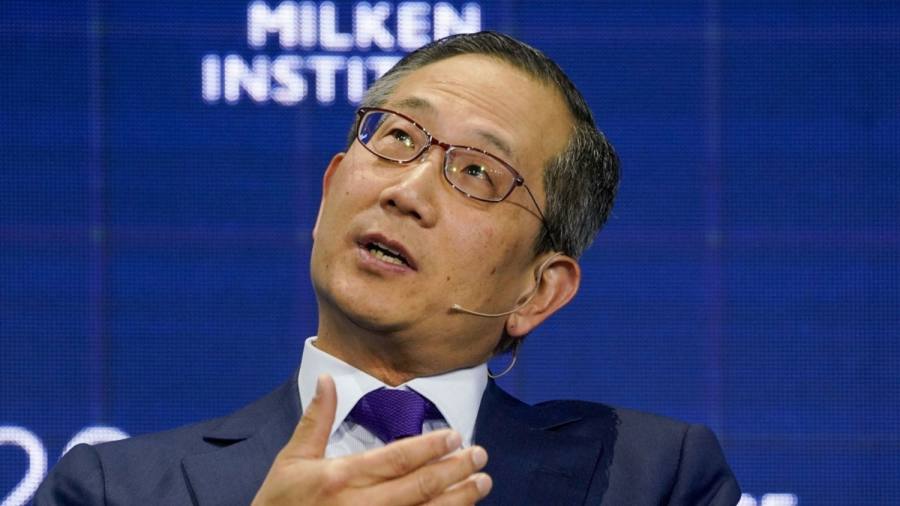
The supposedly superior performance of private capital assets is a double-edged sword. The S&P 500 is down a fifth this year. US alternatives managers have, at least on current valuations, avoided such devastation. But that bounty is a complication for their limited partners like pension funds and endowments.
Those backers have limits on how much they can allocate to private assets, say 20 to 30 per cent of portfolios. The drop in public market values has arithmetically put the real ratios out of kilter. The phenomenon is known as the “denominator effect”.
The beleaguered Carlyle Group has only raised $6bn in fresh capital in the quarter. It is without a permanent chief executive after the departure of Kewsong Lee in the summer. Analysts asked the company whether leadership turmoil had depressed fundraising. The company pointed instead to upheaval among pools of capital that it described as “congestion in the market” and the “denominator effect”.
Several rivals of Carlyle — including Apollo, Ares and Hamilton Lane — have attributed slower fundraising to the denominator effect too. The private assets sector increasingly looks to so-called “permanent capital” and retail investors as drivers of future growth. But traditional backers of private equity remain crucial.
In the third quarter, returns across Carlyle credit and equity funds were flat or slightly positive, well ahead of public markets. Distributable earnings including cash from realisations were up on the previous quarter. However, assets under management fell slightly to around $370bn. So did profits from management fees, the steady income that shareholders prefer.
The shares are down by a half this year, worse than the S&P 500 and rivals such as Blackstone, Apollo and KKR. The private capital sector is prey to worries of higher interest rates and pending losses at portfolio companies.
The businesses themselves would like to be agile opportunists, taking advantage of dislocations in the market. But their ability to get busy is being frustrated by an arbitrary calculation at deep-pocketed institutions around the world.
Lex recommends the FT’s Due Diligence newsletter, a curated briefing on the world of mergers and acquisitions. Click here to sign up.